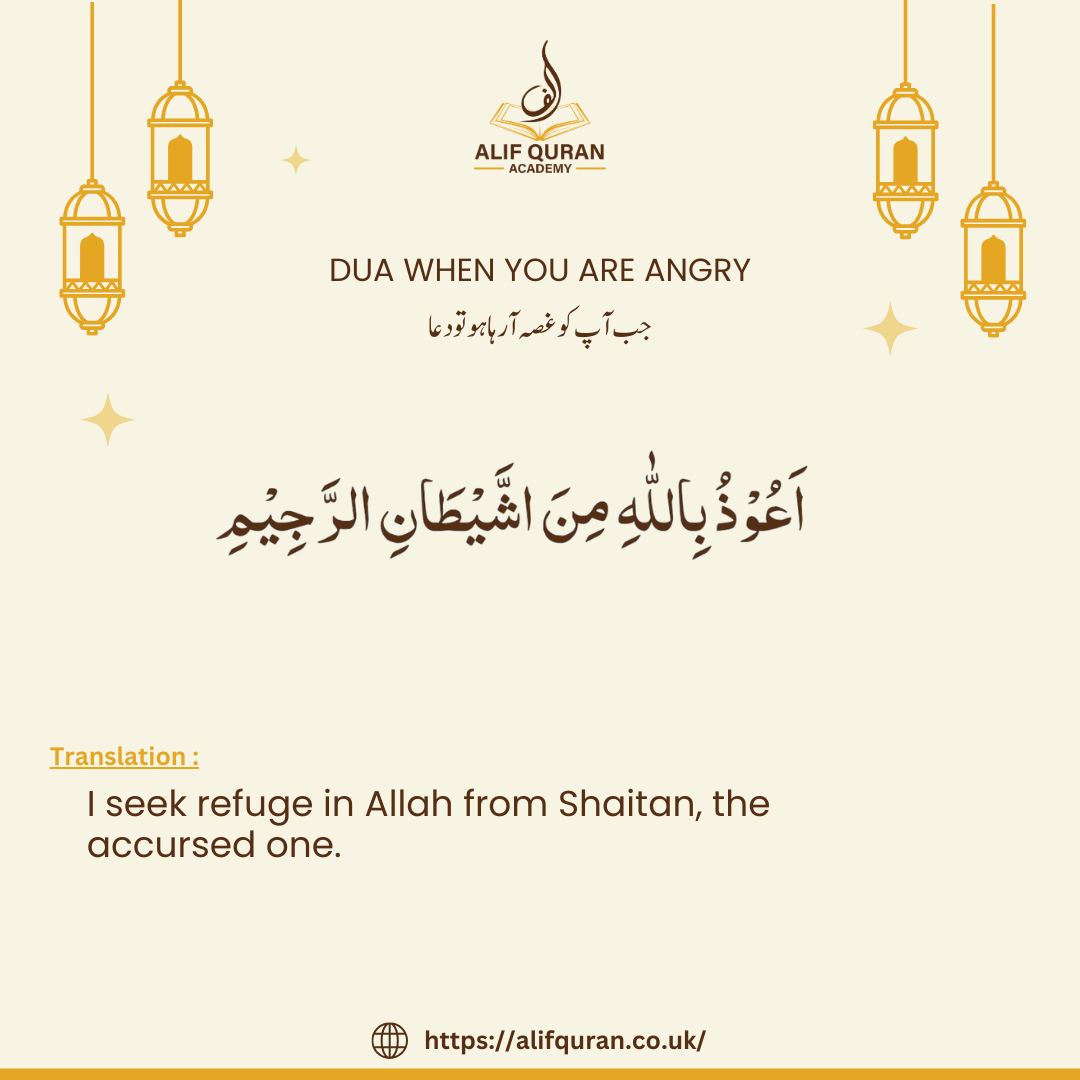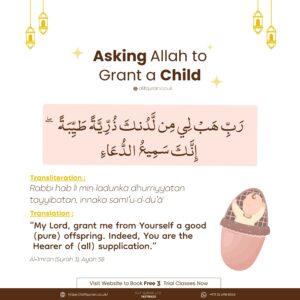DUA WHEN YOU ARE ANGRY

Translation: I SEEK REFUGE IN ALLAH FROM SAITAN, THE ACCURSED ONE.
These practices and reminders can help both children and adults foster patience and composure during times of anger
FAQ
What should a person say when feeling angry?
The Prophet Muhammad (PBUH) advised saying, “A’udhu billahi min ash-shaytan ir-rajim” (I seek refuge in Allah from Satan, the accursed). This helps to calm emotions by seeking protection from the negative influence of anger.
Are there actions recommended to control anger?
Yes, sitting down or lying down if standing can help to dissipate anger. Additionally, performing wudu (ablution) can have a cooling effect on the body and mind, as anger is often associated with heat.
Why is controlling anger important in Islam?
Islam emphasizes patience and restraint, as uncontrolled anger can lead to harmful actions. The Quran praises those who “restrain anger” (Surah Al-Imran 3:134), promising rewards for those who exercise patience.
How does Islam view anger?
While anger is a natural emotion, Islam encourages its management. The Prophet (PBUH) emphasized that true strength lies in self-control rather than physical prowess.
How can parents help children understand and practice anger control?
Parents can teach children by setting examples, reciting the dua when angry, and explaining its significance. They can also encourage children to take calming actions, like deep breathing or brief pauses, to manage their feelings.
Are there other beneficial duas for inner peace?
Reciting Surah Al-Shura (42) and Surah Duha (93) can bring peace and calm. While these aren’t specific anger-management duas, they foster tranquility and mindfulness, helping with emotional control.









